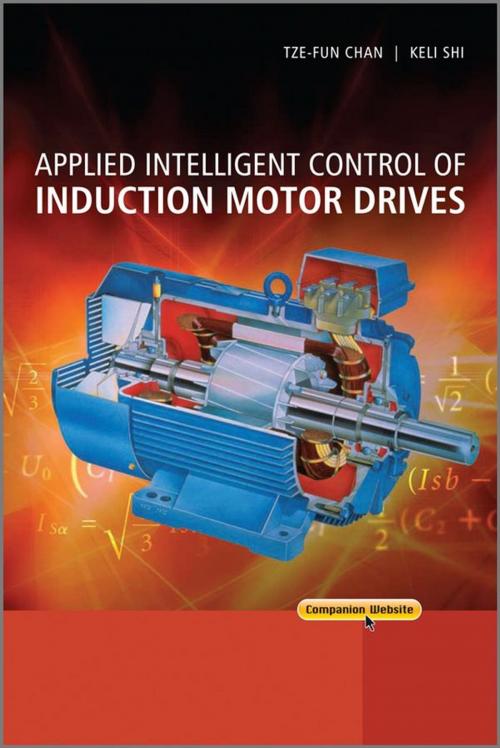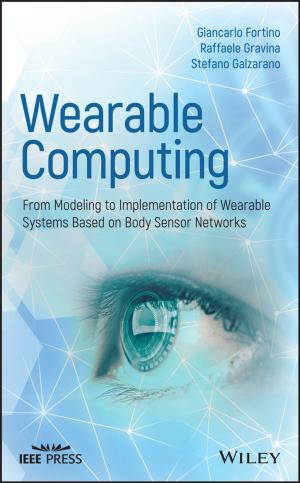Applied Intelligent Control of Induction Motor Drives
Nonfiction, Science & Nature, Science, Other Sciences, System Theory| Author: | Keli Shi, Tze Fun Chan | ISBN: | 9780470828281 |
| Publisher: | Wiley | Publication: | January 19, 2011 |
| Imprint: | Wiley-IEEE Press | Language: | English |
| Author: | Keli Shi, Tze Fun Chan |
| ISBN: | 9780470828281 |
| Publisher: | Wiley |
| Publication: | January 19, 2011 |
| Imprint: | Wiley-IEEE Press |
| Language: | English |
Induction motors are the most important workhorses in industry. They are mostly used as constant-speed drives when fed from a voltage source of fixed frequency. Advent of advanced power electronic converters and powerful digital signal processors, however, has made possible the development of high performance, adjustable speed AC motor drives.
This book aims to explore new areas of induction motor control based on artificial intelligence (AI) techniques in order to make the controller less sensitive to parameter changes. Selected AI techniques are applied for different induction motor control strategies. The book presents a practical computer simulation model of the induction motor that could be used for studying various induction motor drive operations. The control strategies explored include expert-system-based acceleration control, hybrid-fuzzy/PI two-stage control, neural-network-based direct self control, and genetic algorithm based extended Kalman filter for rotor speed estimation. There are also chapters on neural-network-based parameter estimation, genetic-algorithm-based optimized random PWM strategy, and experimental investigations. A chapter is provided as a primer for readers to get started with simulation studies on various AI techniques.
- Presents major artificial intelligence techniques to induction motor drives
- Uses a practical simulation approach to get interested readers started on drive development
- Authored by experienced scientists with over 20 years of experience in the field
- Provides numerous examples and the latest research results
- Simulation programs available from the book's Companion Website
This book will be invaluable to graduate students and research engineers who specialize in electric motor drives, electric vehicles, and electric ship propulsion. Graduate students in intelligent control, applied electric motion, and energy, as well as engineers in industrial electronics, automation, and electrical transportation, will also find this book helpful.
Simulation materials available for download at www.wiley.com/go/chanmotor
Induction motors are the most important workhorses in industry. They are mostly used as constant-speed drives when fed from a voltage source of fixed frequency. Advent of advanced power electronic converters and powerful digital signal processors, however, has made possible the development of high performance, adjustable speed AC motor drives.
This book aims to explore new areas of induction motor control based on artificial intelligence (AI) techniques in order to make the controller less sensitive to parameter changes. Selected AI techniques are applied for different induction motor control strategies. The book presents a practical computer simulation model of the induction motor that could be used for studying various induction motor drive operations. The control strategies explored include expert-system-based acceleration control, hybrid-fuzzy/PI two-stage control, neural-network-based direct self control, and genetic algorithm based extended Kalman filter for rotor speed estimation. There are also chapters on neural-network-based parameter estimation, genetic-algorithm-based optimized random PWM strategy, and experimental investigations. A chapter is provided as a primer for readers to get started with simulation studies on various AI techniques.
- Presents major artificial intelligence techniques to induction motor drives
- Uses a practical simulation approach to get interested readers started on drive development
- Authored by experienced scientists with over 20 years of experience in the field
- Provides numerous examples and the latest research results
- Simulation programs available from the book's Companion Website
This book will be invaluable to graduate students and research engineers who specialize in electric motor drives, electric vehicles, and electric ship propulsion. Graduate students in intelligent control, applied electric motion, and energy, as well as engineers in industrial electronics, automation, and electrical transportation, will also find this book helpful.
Simulation materials available for download at www.wiley.com/go/chanmotor















